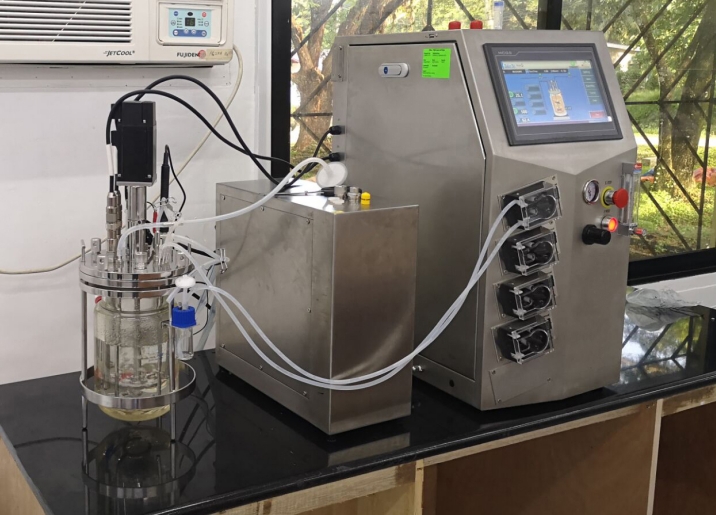
https://www.sinotechmachinery.com/products/glass-bioreactor/
From the green transformation of the aviation industry to the sustainable conversion of biomass, and then to the breakthrough application of synthetic biology, the 90 million yuan investment of the National Research Foundation of Singapore is a bold bet on scientific research and a strong commitment to global environmental governance.
Singapore has invested 90 million yuan in decarbonization fields such as synthetic biology.
This fund will be used to support nine cutting-edge research projects to promote Singapore's goal of achieving net zero emissions by 2050.
These projects not only focus on the innovative application of hydrogen energy, but also cover key technologies such as biomass conversion and synthetic biology, which are expected to reduce greenhouse gas emissions by up to 60%.
Synthetic biology will play a big role in the field of aviation fuel.
The Singapore government has set a clear environmental protection goal: from 2026, all flights departing from Singapore must use at least 1% sustainable aviation fuel.
This proportion is expected to increase to 3% to 5% by 2030. In the early stage, the cost of such fuels will be twice that of traditional fuels, but with technological advances and large-scale production, the cost is expected to decrease.
Developing pollution-free, zero-emission, sustainable synthetic biological fuels,
The collaborative research project between the National University of Singapore and the French National Center for Scientific Research is one of the highlights of this funding. The project uses the principles of synthetic biology to produce sustainable fuels through chemical reactions between bacteria and carbon dioxide.
If successful, this will provide a new fuel source for the aviation industry, while converting industrial carbon dioxide emissions into valuable energy, achieving a significant reduction in carbon emissions.
Four major aspects of synthetic biology decarbonization,
The decarbonization research project is divided into four aspects, including: hydrogen energy application; green chemical technology for sustainable conversion of biomass into chemicals and biofuels; using synthetic biology to allow microorganisms to convert carbon dioxide into chemicals and biofuels, and developing net-zero production methods for the pharmaceutical field.
Many countries will be deeply involved in synthetic biology projects,
The research of NUS and the French National Center for Scientific Research is one of the funded projects. The other eight domestic and foreign universities and institutions participating in the research include Nanyang Technological University, Cambridge University, Shanghai Jiao Tong University, and the Max Planck Institute in Germany.

 English
English français
français Español
Español русский
русский português
português العربية
العربية




